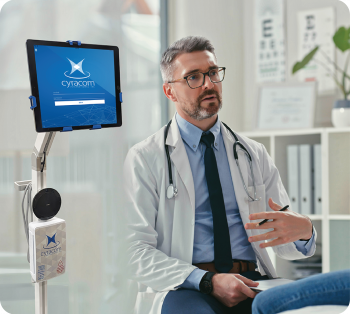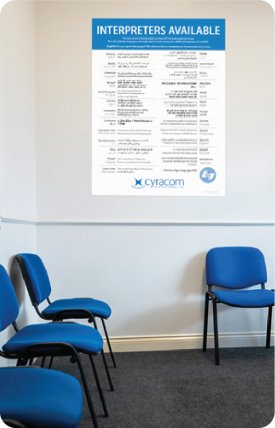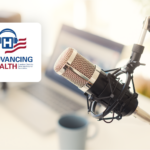Providing support and services to human trafficking survivors can be even more challenging when language barriers inhibit communication. If your team provides healthcare or human services to victims of human trafficking or domestic violence, you need to establish a detailed language access plan to ensure they get the help they need. Here are a few ways you can improve language access for human trafficking survivors:
What challenges do victims of human trafficking experience?
Human trafficking, a crime against a person where an individual is exploited for work or sex, often relies on victim control and isolation. According to this HHS study, “Many victims, whether international or domestic, do not believe that they are a victim of a crime. This is often due to their lack of education and understanding of human trafficking and their lack of awareness of their rights as a victim. But according to law enforcement and service providers who have worked with victims, victims are also frequently told by their traffickers that they are to blame for their circumstances and that they are the criminals who will be deported or arrested if caught. And due to their past and current experiences, many victims believe this portrayal of reality presented by the traffickers.”
When a victim of human trafficking is also limited-English proficient (LEP), their isolation can be even greater because of language barriers between the victim and people they might ask for help. In addition:

- People who have been trafficked often have general health issues such as:
- infections
- malnourishment
- dental issues
- undetected, untreated, or chronic diseases
- scars and other physical signs of trauma and abuse
- mental health illnesses
- psychological trauma
- Traffickers often exploit victims’ mental health challenges or initiate drug dependencies to further control their victims.
- Victims of human trafficking often lose access to their identity documents, and may not attempt to gain copies due to language barriers.
- An LEP victim may be controlled to the point of insisting a friend or family member should interpret for them, citing comfort or companion concerns.
How can your team provide better support for human trafficking survivors?
Providing equitable healthcare to LEP victims of human trafficking requires your team to take extra steps to ensure clear communication, including:
Interpretation services
- In possible trafficking cases, it is best to assume a victim’s companion may be connected to the case and will not ensure a victim’s best interest. Be wary about interpreter preference requests and utilize a neutral interpreter to help your team communicate completely and confidentially.
- In addition to showcasing your ACA Section 1557-compliant “Interpreters Available” posters, consider making it easier for LEP victims to connect with an interpreter by:
- Providing unique toll-free numbers that make it easier for your patients to call your staff with an interpreter already on the line
- Using interactive voice response (IVR) automated greetings in other languages on your primary telephone line (i.e., Press/Say 3 for Vietnamese) helps patients access an interpreter when they contact your team

Translation services
Translating written content can help people with LEP understand the care your team will provide. We recommend:
- Translating consent forms and discharge/medication instructions to reduce the risk of medical errors
- Providing education materials in multiple languages, allowing them to take the information home and read it on their own time
- Using creative translation solutions to improve patient experiences, like the strategies described in our UK HealthCare case study

What other resources are available for victims of human trafficking?
The article “Strengthening Language Access for Survivors of Human Trafficking” describes many resources and programs that utilize or provide language services to victims, including:
- The Office on Trafficking in Persons (OTIP) issues Certification and Eligibility Letters to adults and children who experience human trafficking, enabling eligibility for refugee benefits and services. OTIP also created the Look Beneath the Surface (LBS) Public Awareness Campaign, which posted materials in subway stations and bus stops in languages such as English, Spanish, and Haitian Creole.
- The National Human Trafficking Hotline and corresponding website are available in English and Spanish, and the hotline’s National Referral Directory lists service providers attesting to proficiency in more than 60 languages.
- The Trafficking Victim Assistance Program (TVAP) and Domestic Victims of Human Trafficking Program (DVHT) programs provide comprehensive case management, which includes access to interpretation services.
CyraCom provides high-quality, culturally competent language services to help your team support victims.
Contact us today to ask questions or request a free consultation








